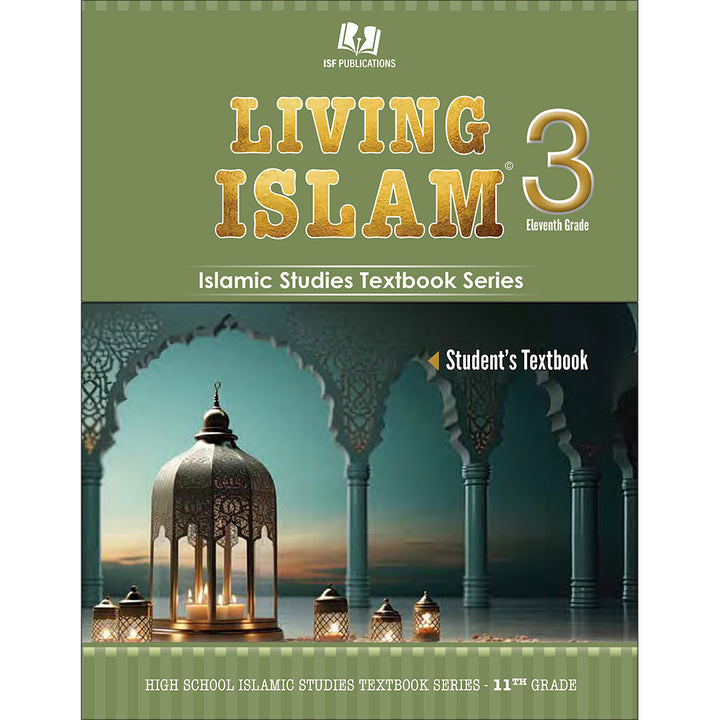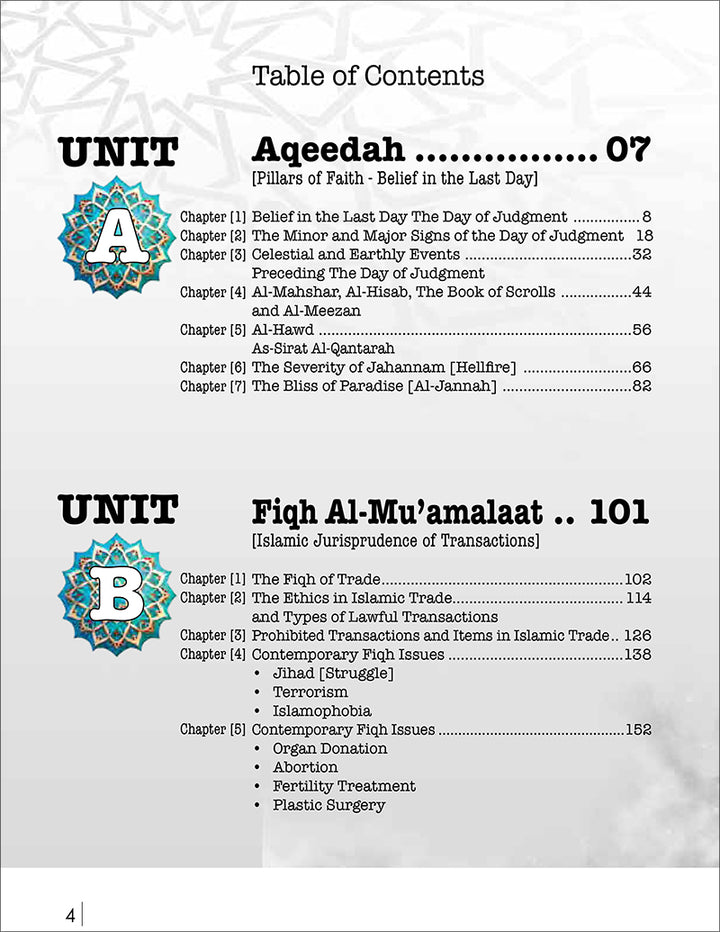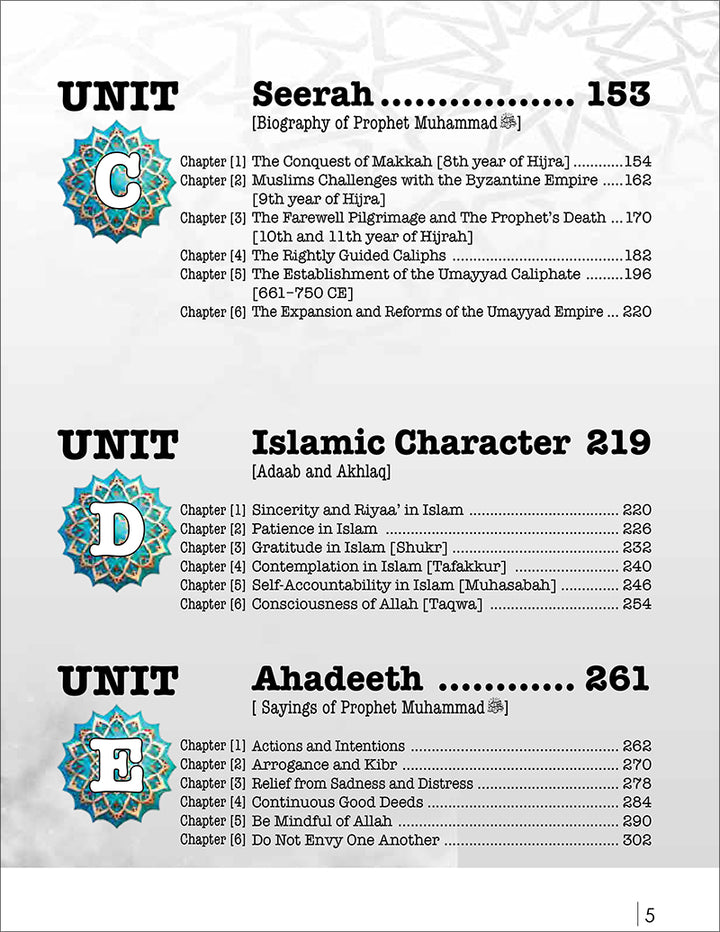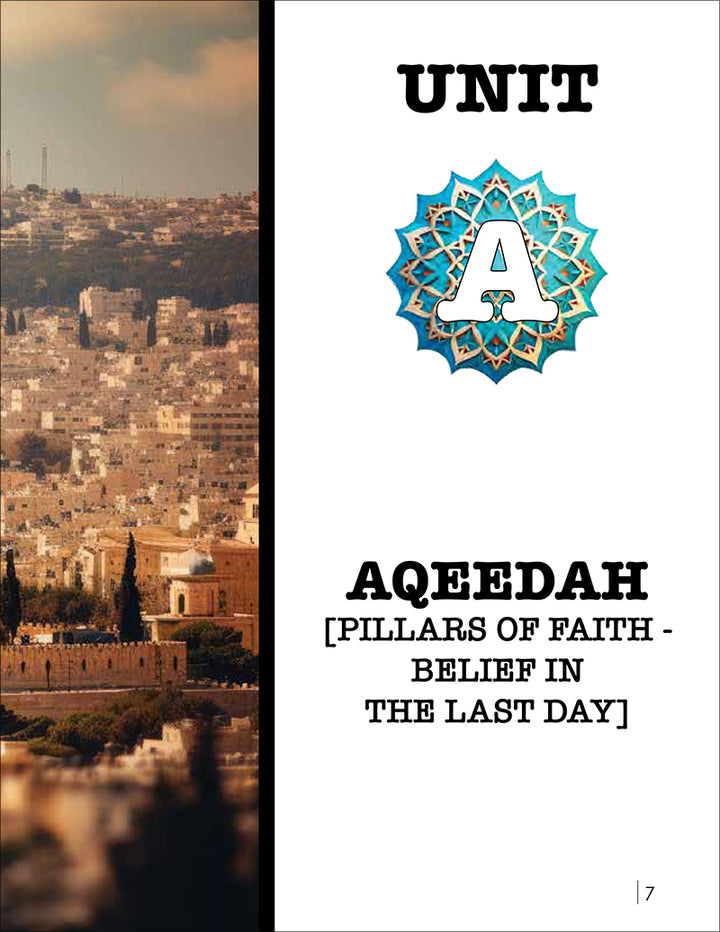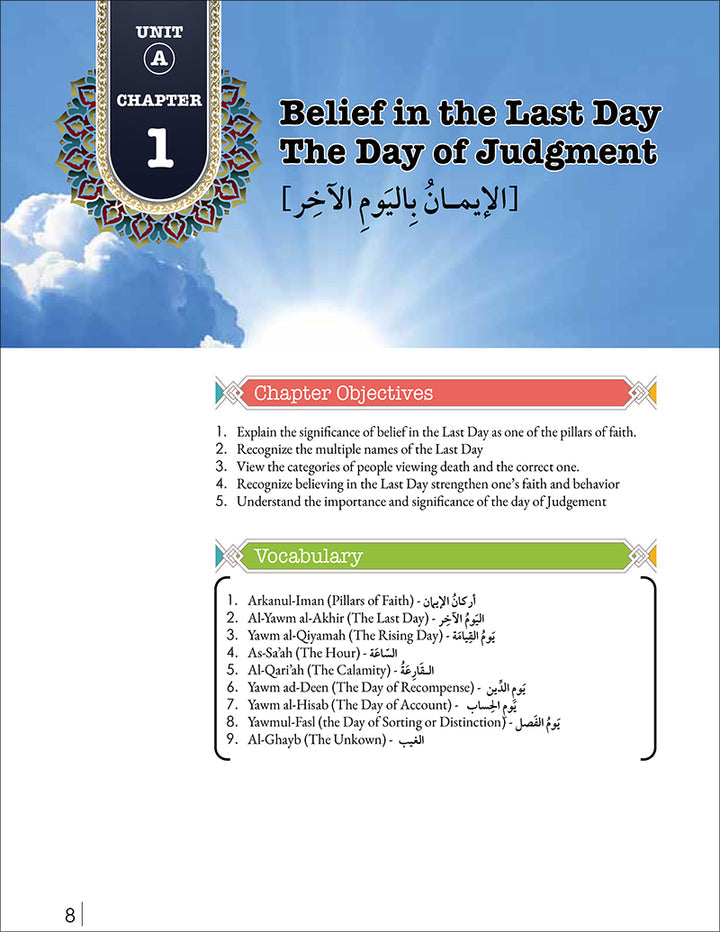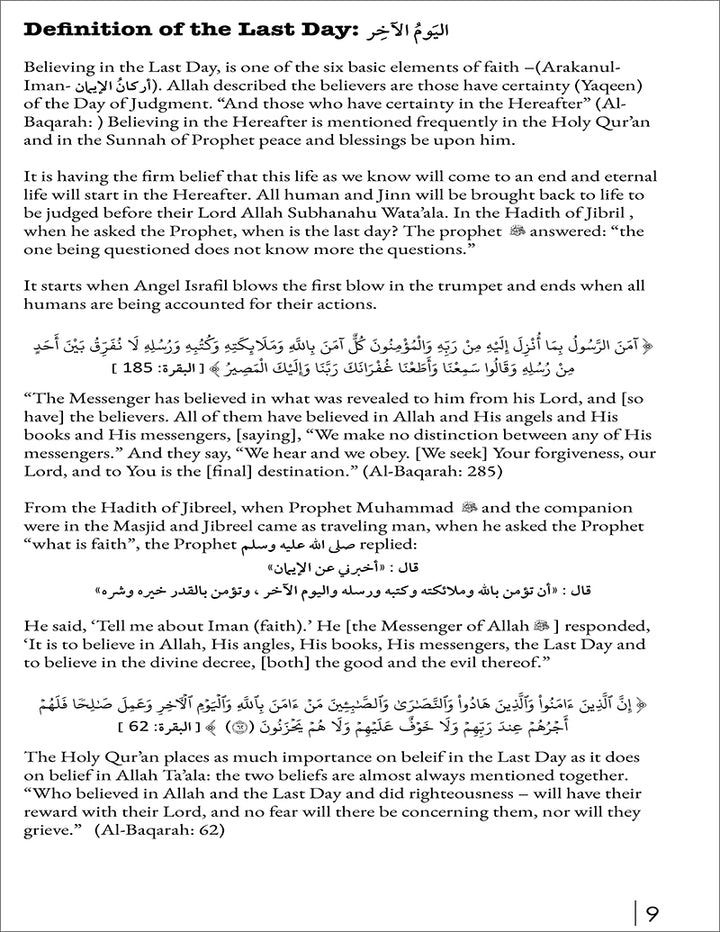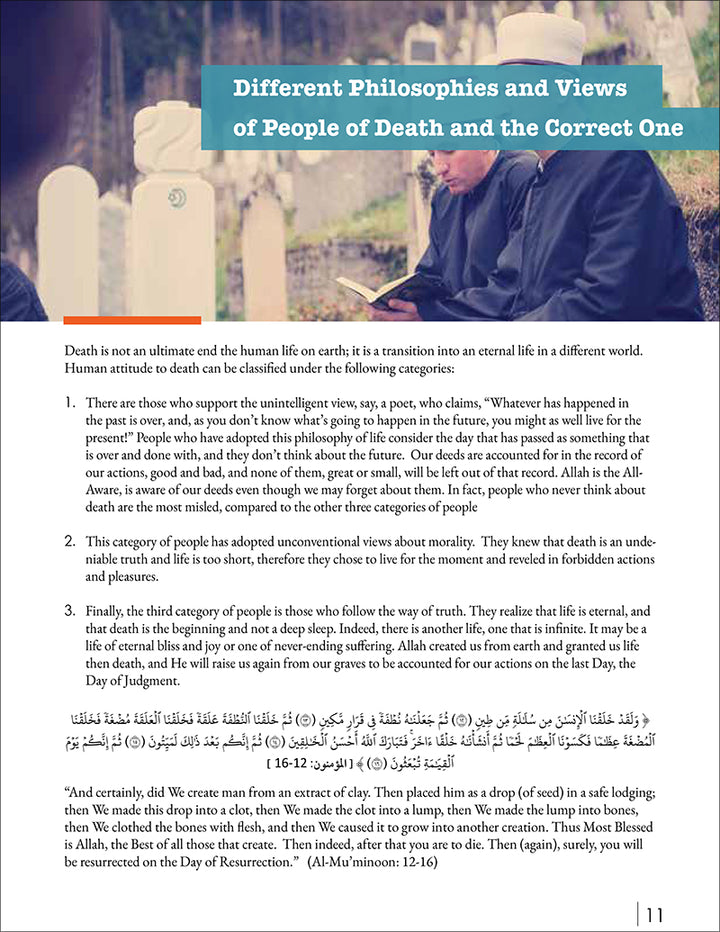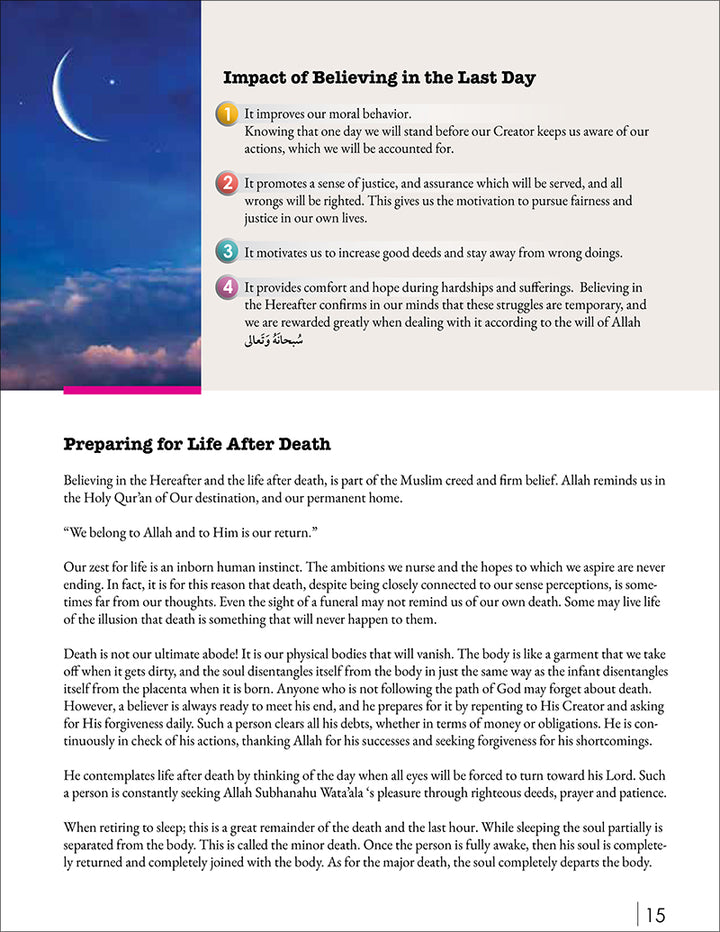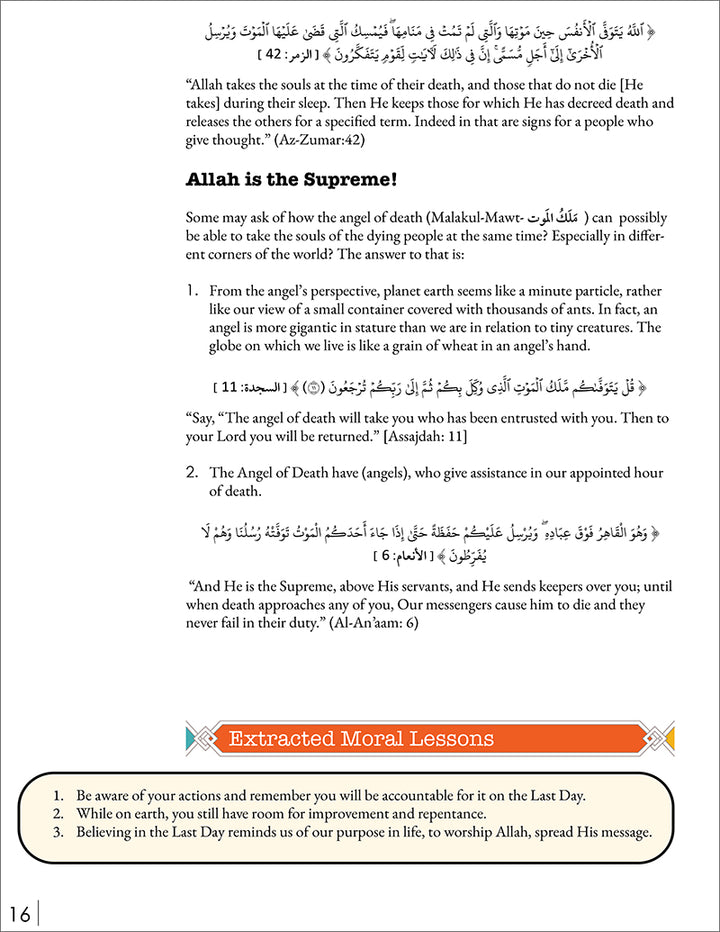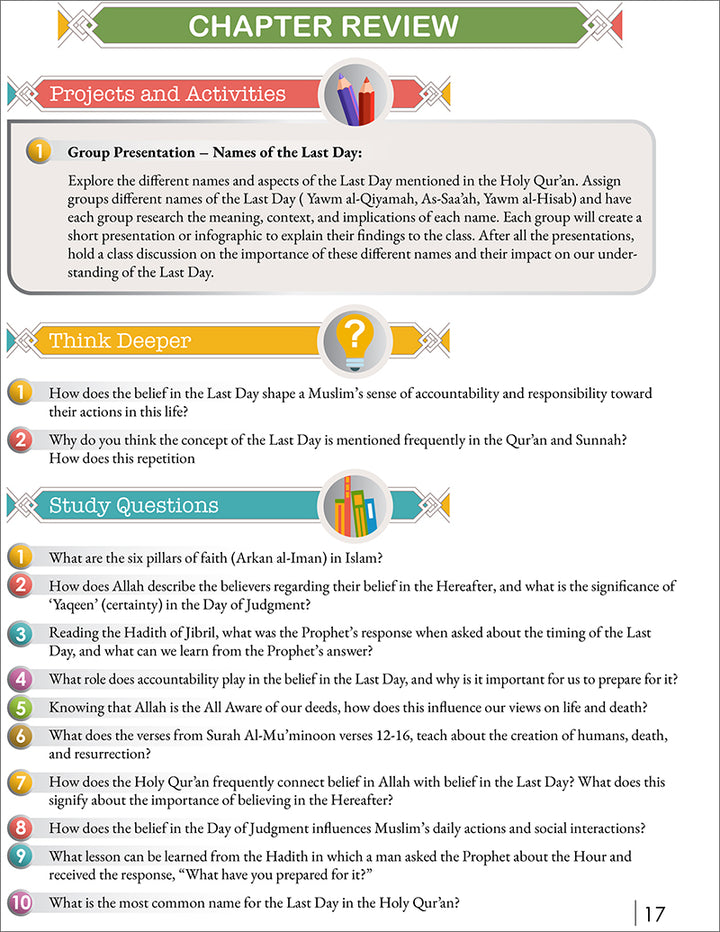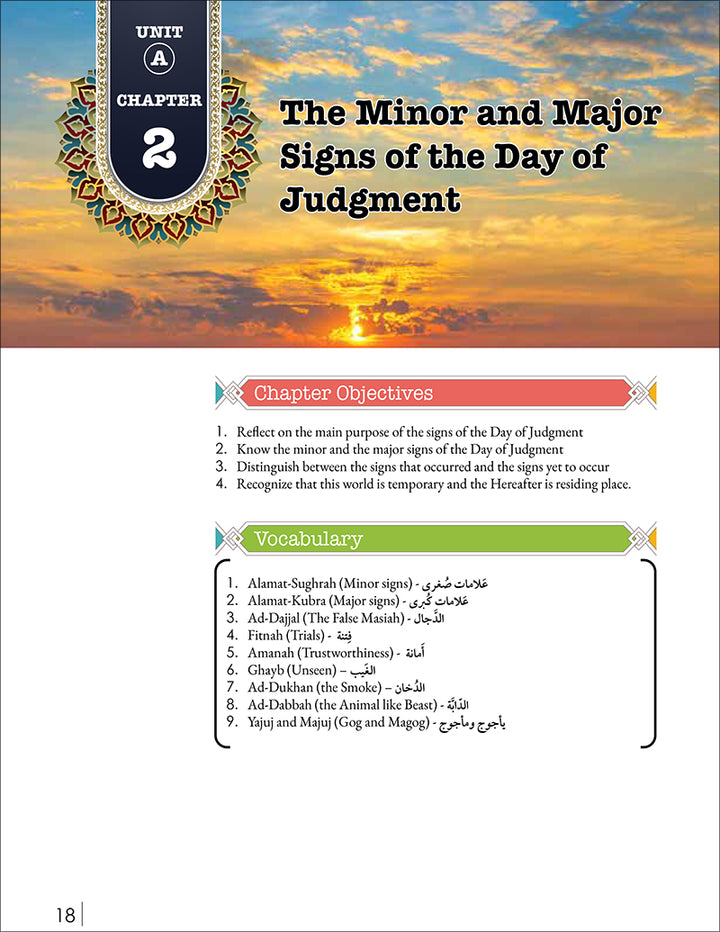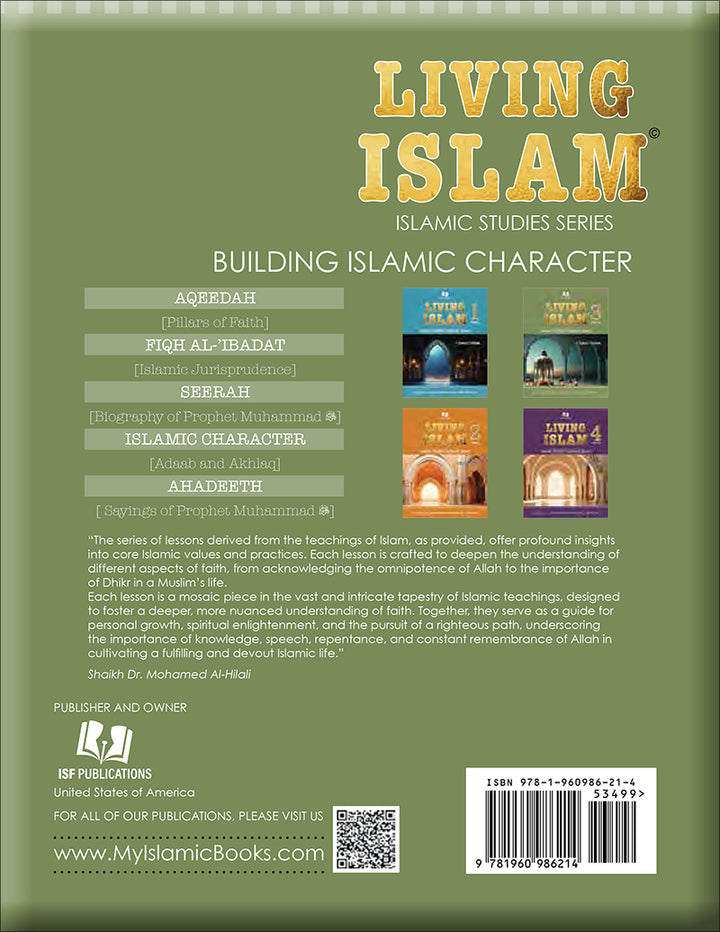SKU:
CBLISL3-EW
Living Islam 3 (11th Grade)
$3499
Unit price
/
Unavailable
Taxes, discounts and shipping calculated at checkout.
Living Islam 3 (11th Grade) is backordered and will ship as soon as it is back in stock.
Living Islam high school Islamic Studies series by ISF. It is the only comprehensive curriculum of its kind, offering a full progression across all four grade levels. It covers the five essential areas of Islamic knowledge: Aqeedah, Fiqh, Seerah and History, Islamic Character and Tazkiyah, and Hadith. Designed specifically for Muslim youth, it combines foundational learning with practical application and critical reflection. The series also addresses contemporary issues with clarity and balance, helping students navigate modern challenges while remaining grounded in their faith. With its authenticity, structure, and relevance, Living Islam will fill a major gap in Islamic education for teens.
Living Islam© is a series of Islamic studies textbooks that introduces High School level Muslim students to the essentials of the Islamic faith, and brings to light the spiritual, historic and cultural aspects of Islam in elaborate manner. This series builds upon ISF Publications primary series “I Love Islam” and “Learning Islam” which covers Islamic Studies for grades one through eight.
All praise is due to Allah (God), for providing us with the resources that have enabled us to complete this series. Although, extensive efforts have been made to review the enclosed material, constructive suggestions, corrections and comments to improve and enrich the content of this work are welcome. This is an ongoing project, and it is our sincere hope that it will impact our Muslim learners today and for many years to come.
Living Islam© is a series of Islamic studies textbooks that introduces High School level Muslim students to the essentials of the Islamic faith, and brings to light the spiritual, historic and cultural aspects of Islam in elaborate manner. This series builds upon ISF Publications primary series “I Love Islam” and “Learning Islam” which covers Islamic Studies for grades one through eight.
All praise is due to Allah (God), for providing us with the resources that have enabled us to complete this series. Although, extensive efforts have been made to review the enclosed material, constructive suggestions, corrections and comments to improve and enrich the content of this work are welcome. This is an ongoing project, and it is our sincere hope that it will impact our Muslim learners today and for many years to come.

